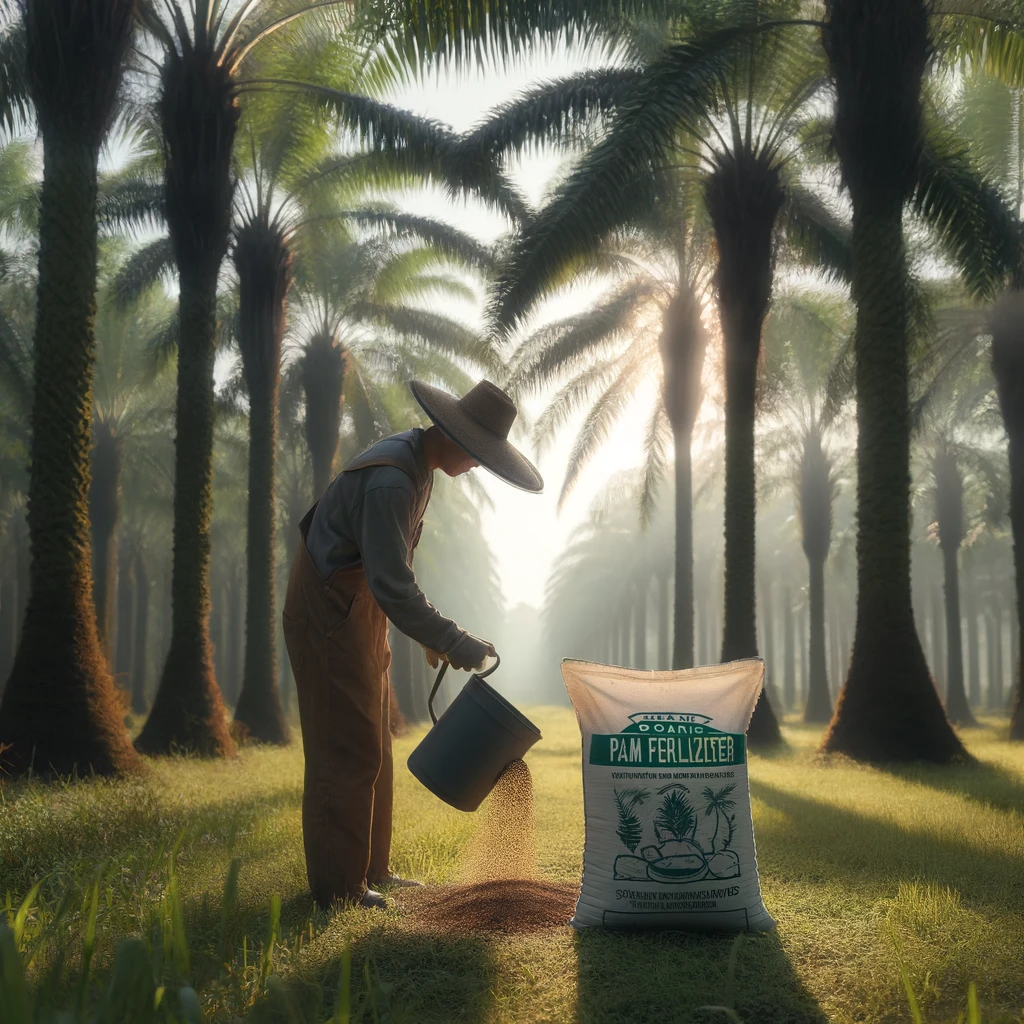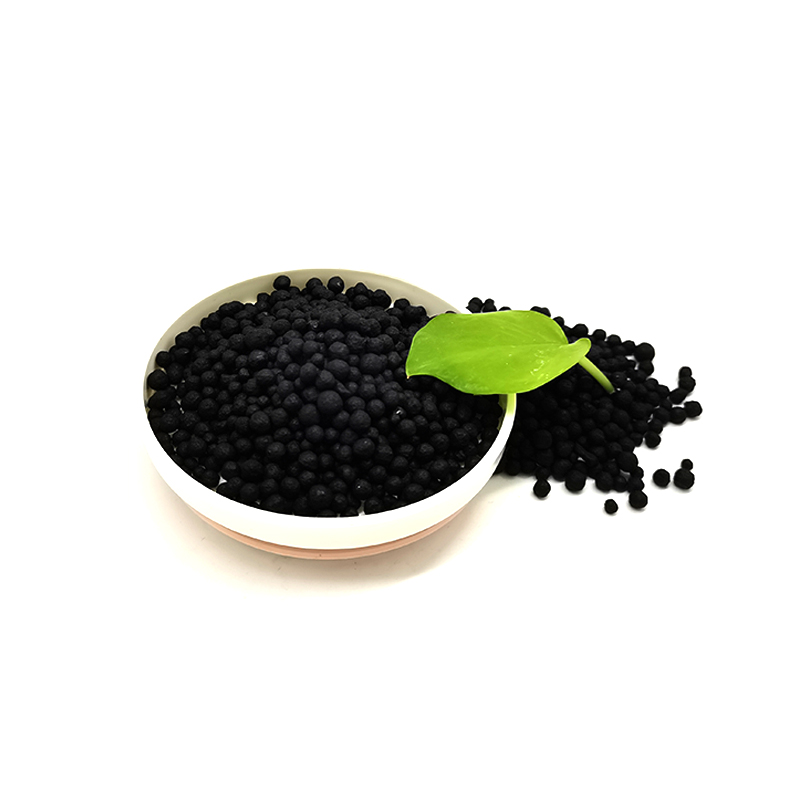Introduction to Palm Tree Cultivation
While the profile of the palm is certainly a facet of everything tropical, these plants are also important agricultural crops, found in both tropical and subtropical situations. It takes a bit of knowledge of different palm varieties to get them to thrive. Coconut palms (Cocos nucifera), for example, can grow up to 60-70ft tall. Their areca cousins (Areca catechu) don’t grow nearly as tall, but they can demand their fair share of your attention as a garden vegetable.
In the pursuit of a palm that is green and healthy and productive, it all comes down to picking the right organic palm fertilizer. It’s not an overstatement to suggest that the right fertilizer can make or break a palm’s health. An inappropriate fertilizer can impact almost every aspect of a palm’s life, hindering its ability to absorb the nutrients it needs, forever compromising its ability to resist diseases, and even stunting its growth for good. This is the reason that planting a single organism in one species – a palm – in its natural environment, tropical South America, can become so complicated.
The renowned botanist Simon Green, with expertise in tropical plants, explains why choosing an appropriate fertilizer is critical: ‘The right fertilizer can inoculate against well-known nutrient deficiency syndromes, and help overcome harsh climates that … can inhibit growth of palms.
In this section, we discovered the extraordinariness of the firmament of palm trees and their particular needs on all levels nutritional to know by all that farming palm trees with the use of organic palm fertilizer is not just beneficial but a necessity for the palm trees firm growth and healthy lives. As well, we plunged into an examination of the advantages and non-advantages of using palm fertilizer made from organic sources. This was foundational in our comprehension of the benefits of the use of organic fertilizer for palm trees and its potential applicability.
Benefits of Using Organic Palm Fertilizer
The use of organic palm fertilizer has many advantages which can assist the palm trees to develop good health and an abundant supply of fruits. It is also a more eco friendly method of gardening and one that every gardener can benefit from. The other benefit of these types of organic fertilizers is that they contribute to the health of our environment, thus creating a positive outcome for the whole ecosystem.
Organic fertilizers (a mix of composted plant matter, animal manure and any other biodegradable matter) also play a critical role, enriching the soil. An agronomist specialising in sustainable agriculture, Dr Linda Peterson explains: ‘Organic fertilizers improve soil structure: they increase the soil organic matter, which improves soil texture. With an improved texture, the soil has better aeration and water holding capacity, which are ideal for palm root development. Not only do the palms benefit, but the root structure also benefits the total ecosystem, thickening it up, thus creating more biodiversity and reducing erosion.’
When using these organic palm fertilizers, the nutrient uptake efficiencies of the palm trees improve. Since the organic palm fertilizers release the nutrients slowly, the nutrient supply to the palm trees are such that the nutrient demand of the palm trees are met at each stage of growth, and the nutrients are not released in abundance all at once. This reduces the incidence of nutrient leaching in our organic palm fertilizers, compared with the use of synthetic fertilizers, and allows for a more consistent nutrient environment for the growth of the palm trees for the long term.
Dr Peterson further explains the significance of this slow release: ‘Organic fertilizers, by definition, provide a more balanced nutrient assembly as compared with the unbalanced nutrient assembly of synthetic formulations. This balance is needed, not only to ensure an immediate growth requirement of the palm trees, but also its long-term health and productivity.
Furthermore, palm trees fertilised organically are more resistant to pests and diseases In fact, organic palm fertilizer contains natural ingredients that help palms become healthier, stronger and better able to resist the effects of pests and diseases.
In conclusion, organic palm compost has many benefits: better organic matter in the soil, which enhances the utilization of nutrients in crop plants. Consequently, using the organic fertilizers give healthy palm growth and development. For this reason, anyone who wants to maintain productivity and the health of their palms while also promoting environmental sustainabilty needs to use organic fertilizer.

Key Components of Organic Palm Fertilizer
Organic palm fertilizer contains a certain number of desirable natural ingredients that are considered important to the well-being of palm trees, in that they are effective in promoting not only the optimum health but also the healthy development of the palm. Understanding what exactly these ingredients are and why they are important can help one in his efforts to give his palm(s) the best care possible.
Organic fertilizers for palm trees generally consist of natural products including bone meal, fish emulsion, seaweed extracts and composted manures. All the materials contain nutrients that palms need. Bone meal supplies phosphorus, critical for the development of roots, while fish emulsion literally offers only nitrogen in high quantities to promote leaf growth.
Seaweed extracts, another common ingredient, provide trace minerals and growth-promoting hormones that enhance the palms’ overall health. ‘Seaweed is excellent for palms as it contains many micronutrients as well as natural growth stimulants,’ says Angela Hartfield, a soil scientist and expert on organic fertilisation methods. ‘This leads to much better health and tolerance in palms.
Together, these natural materials provide palm trees with a wide assortment of crucial nutrients in forms readily available for plant uptake, and this contextual nutrition feeds not solely the structural and physiological requirements of the palms but augments biotic activity in the soil, creating an abounding microbial presence that helps to mineralise nutrients through making them more accessible to palm-root uptake.
The slow-release nature of these organic molecules for a more timed-release of nutrients, avoiding the excess that leads to problems such as root burn or the fast growth of soft, fragile new tissue that’s prone to disease. ‘Gradual release is compatible with how palm trees naturally grow, so there are not shocks to the system,’ Hartfield tells me.
In conclusion, in organic palm fertilizer, there are several important components, which are very necessary to providing plant nutrients. Moreover, they can also contribute to the soil fertility of the palm planting area. Therefore, it is very good for palm trees to develop strongly and planting sustainably, and planting like this can acquire longer time and higher yield products.
How to Properly Apply Organic Palm Fertilizer
Organic palm fertilizer should be applied to promote the health and development of palms; it should be used according to best practice to ensure that palm trees get the right nutrients at the right time and in the right way to achieve the best health and productivity outcomes.
Timing is important for applying organic palm fertilizer since the palms grow actively during spring and summer months (depending on the region), so it is critical to fertilise them at active growing periods so that they can support new growth and fruit development.
‘As with any crop, it’s good to supplement with organic fertilizer right before the new growth season starts,’ says Emily Stone, a pioneer in the field of tropical horticulture and the author of How to Grow Tropical Plants Indoors. ‘That way, palms can strengthen their new growth with proper nutrient support.’ A thin seaweed application in early fall prepares them for the cold, slower growing season, and will maintain them in good health and reduce susceptibility to stress.
When applying organic palm fertilizer, application method may vary based on the product and the palm type. In genera, fertilizer should be spread throughout the length of the feeder roots, which is at the base of the palm going out to the drip line (area immediately below the outer circumference of the tree’s canopy). This will place the nutrients where the palm roots can absorb them.
For larger species of palms, Dr Stone says: ‘Incorporate nitrogen into the top inch or so of soil, which will decrease the amount of nitrogen that leaches out of the root zone and into surface and ground water, and also improves the probability of that fertilizer reaching the root zone, where it is needed.’ For small potted palms or other smaller varieties, a diluted liquid fertilizer is preferable than feeding the small volume of soil a high concentration of nutrients.
Apply enough organic palm fertilizer so that there is some visible appearance in the upper inch of the soil but not so much as to build up a black water-proof crust on top of the soil. Apply more fertilizer as the palm responds but remove it if it sits on the soil unreacted. Soils with a low organic level will need more fertilizer. If there is heavy rain, apply ½ to 1 lb more fertilizer per 100 feet of rows and rakes the fertilizer into the soil. If you over-apply fertilizer, it can burn the palms as well as be a source of pollution.
To be sure your palms are getting adequate amounts of nutrients, take regular soil tests every three years so that you can adjust your fertilizer regimen to the conditions of your garden or landscape.
Following these best practices for the organic palm fertilizer applications will help to ensure that palm trees are not just supplied, but they will also improve their abilities to harness their environments, which will lead towards lush, healthy and productive palms.

Comparing Organic and Synthetic Palm Fertilizers
Should you choose organic or synthetic fertilizer for growing palm trees? Palm growers need to make a choice between use of organic and synthetic fertilizers. The decomposition of palm tree leaves, shedding of fronds, and other natural processes all release nutrients into the environment. This process is normally gradual, but increased the rate and intensity of inputs from fertilizers means that either the system needs to get better at utilising more nutrients, or the excess will problems for the soil, plants, and environment. Understanding the differences between palm-based and other fertilizers can aid palm growers make their decision according to their gardening and environmental goals.
Organic fertilizers come from natural, decomposable matter, which enters the soil gradually, helping the soil quality improve over time. They’re less prone to pollute, too, as they are absorbed slowly and gradually by plants. The environmental scientist Dr Rebecca Lou is persuaded by this eco-friendliness of organic alternatives: ‘Organic fertilizers improve soil organic matter which helps water and nutrient holding capacity of the soil thereby less often application or concentrated in environmental toxins.’
In contrast, synthetic fertilizers can include chemicals that can leach through the soil to mix with groundwater, or run off into surface waterways leading to water bodies and eutrophication of lakes, rivers and bays with detrimental algal blooms, thus polluting water drinking supplies and damaging local habitats and wildlife.
For longterm soil health, organic fertilisation also increases the percentage of organic matter in the soil, critical for promoting a vibrant microbiome of microorganisms essential for healthy soils. This natural approach leads to bigger, better palm trees – and more robust in their defence against pests and diseases.
On the other hand, while synthetic fertilizers can deliver a short-term nutrient boost, in the long term they can detract from soil health. They don’t usually provide the same organic matter needed to maintain soil structure and microbial life. ‘An over-reliance on synthetic fertilizers can lead to nutrient imbalances and soil acidity, especially in the long term,’ Dr Lou says. ‘And this can lead to degradation of soil health and losses in productivity.
The example between organic and synthetic fertilizer used to plant palms show us the advantages of using the organic methods, particularly in terms of the enviromental impact and the longterm sustainability. Indeed, while synthetic fertilizers may provide some excellent results in terms of productions, they can would lead to risks, particularly in the longterm aspects, for the enviroment and palms health.
Because of all this, I greatly prefer using organic palm fertilizer compared with the pellet version: not only does it avoid the toxic issues relating to plastic pollution, it also helps to enhance the ecological garden by conserving the natural soil and ecological environment, avoiding chemical damage, and cultivating cherished palm trees which benefit the ecosystem and contribute positively to its natural protection and improvement rather than simply providing a poisoned atmosphere..
Conclusion
Finally, I would like to state that, in my opinion, using organic palm fertilizer is very important if one wishes to receive positive results. This guide has demonstrated the many advantages of these methods, not just for the palm trees but the wider environment.
The soil is made fertile, a healthy root system is ensured, and nutrient uptake is improved – the foundation for vigorous palm growth and sound development. Organic fertilizers are a balanced and sustained source of nutrients, which greatly benefit palms to thrive and yield under different climatic conditions. The slow-release form of fertilizers maintain soil health and structure over the long term, an important factor in the sustainability of palm plantations.
Using organic palm fertilizer isn’t merely a choice of how you cultivate your palms; rather, it’s an ecological choice: We recommend you use organic fertilisation instead of chemical fertilizers. You don’t only help out your palms, but also maintain the flourishing of a healthy ecosystem.‘Switching to organic fertilisation techniques not only guarantees healthy palms, but also plays a vital role in the constant maintenance of ecosystems,’ said Dr Rebecca Lou. For gardeners, growers and other green-thumbs, utilising organic fertilisation techniques not only ensures sales, but also helps the environment.
In this way, the application of organic palm fertilizer promotes positive health beyond the immediate surroundings in which the palm grove is planted, affecting ecological systems at varying global scales. Palm growers who opt for organic methods are thus promoting practices of sustainable, responsible and appropriate cultivation, in harmony with the needs of both the grove and the planet.
Here are some authoritative references on organic palm fertilizer:
- National Center for Biotechnology Information – This resource offers access to a broad range of scientific studies and literature, including research on organic agriculture practices and their effects on palm tree cultivation.
- PubMed – A comprehensive database of biomedical literature that includes studies on the effects of organic fertilizers on palm growth and soil health. You can search for specific studies that detail the benefits and methodologies of using organic fertilizers in palm farming.







